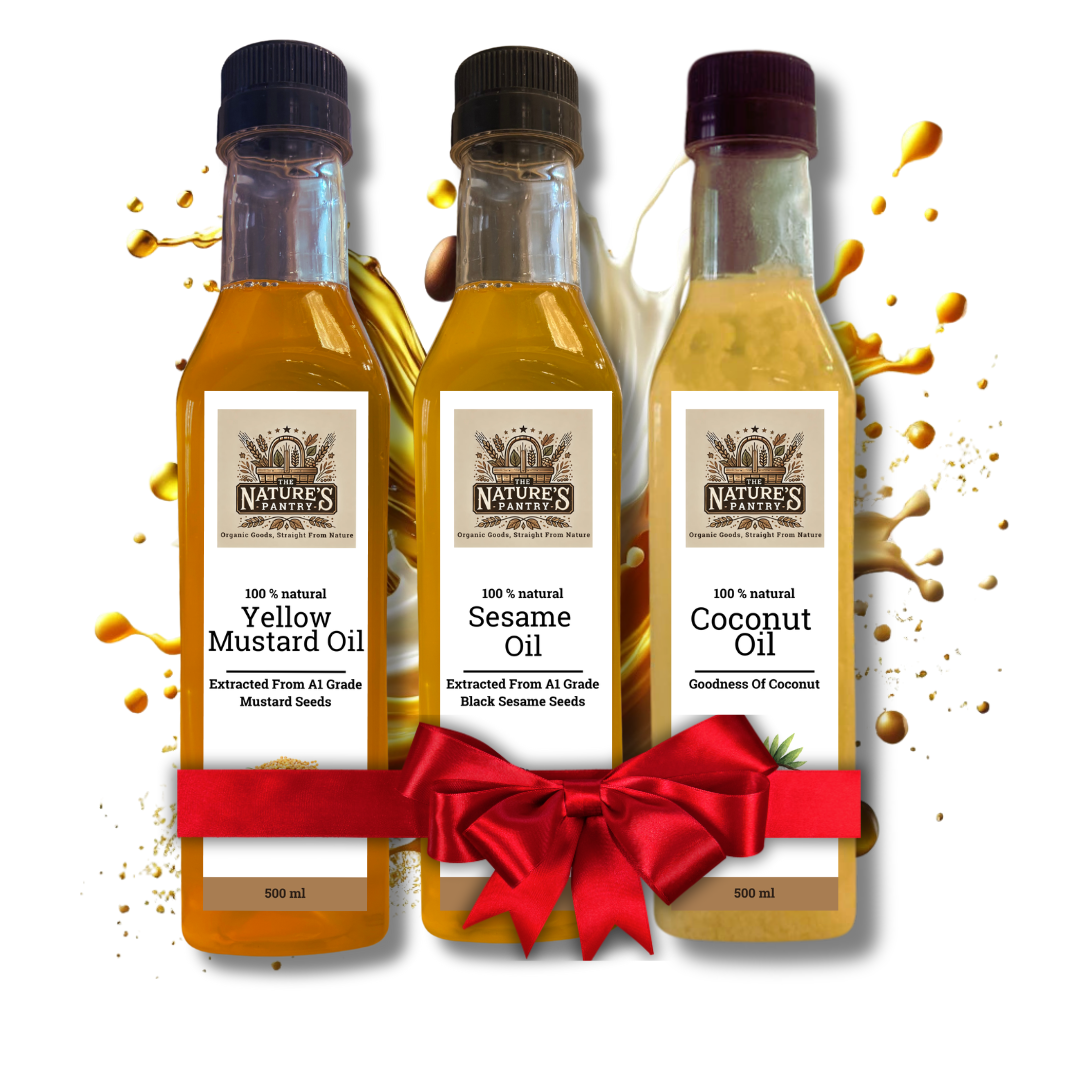Meaning of Refined Oil: Process, Benefits, and Health Concerns
Share
What is Refined Oil?
The meaning of refined oil refers to any type of oil that undergoes processing to remove impurities, color, odor, and other unwanted substances. Unlike cold-pressed or unrefined oils, refined oils go through chemical and mechanical treatments to make them more stable and suitable for longer shelf life.
How is Refined Oil Made?
Refined oils are extracted using high-heat processing and chemical solvents like hexane to maximize yield. The process typically includes:
- Extraction: Oils are obtained from seeds or nuts using mechanical pressing or chemical solvents.
- Degumming: Removal of gums and impurities using water or acid treatment.
- Neutralization: Free fatty acids are eliminated to prevent rancidity.
- Bleaching: The oil is treated with activated clay to remove color pigments.
- Deodorization: High-temperature steam treatment eliminates strong odors and flavors.
Types of Refined Oils
Several commonly used refined oils include:
- Refined Sunflower Oil
- Refined Soybean Oil
- Refined Canola Oil
- Refined Palm Oil
- Refined Groundnut Oil
Benefits of Refined Oil
Refined oils are widely used due to their:
- Neutral Taste and Smell: Suitable for various cooking methods.
- High Smoke Point: Ideal for deep frying and high-heat cooking.
- Longer Shelf Life: Less prone to rancidity compared to unrefined oils.
Health Concerns of Refined Oil
Despite their advantages, refined oils pose some health risks:
- Loss of Nutrients: Refining removes natural vitamins, minerals, and antioxidants.
- Chemical Residues: Traces of hexane and other solvents may remain in the final product.
- Trans Fats and Oxidation: High-heat processing can lead to harmful trans fats and oxidation, increasing the risk of heart disease.
Refined Oil vs. Cold-Pressed Oil: Which is Better?
- Cold-pressed oils are extracted at low temperatures without chemicals, retaining more nutrients and natural flavors.
- Refined oils, on the other hand, are processed for stability and affordability but may lose nutritional value.
Should You Use Refined Oil?
While refined oils are convenient, it's advisable to choose healthier alternatives like cold-pressed oils (mustard, coconut, sesame) or minimally processed oils to maintain better health.
Conclusion
The meaning of refined oil lies in its processing methods, which make it more commercially viable but may reduce its nutritional benefits. If health is a priority, opting for unrefined or cold-pressed oils is a better choice for cooking.
For premium-quality cold-pressed oils, check out our natural and chemical-free range today!



